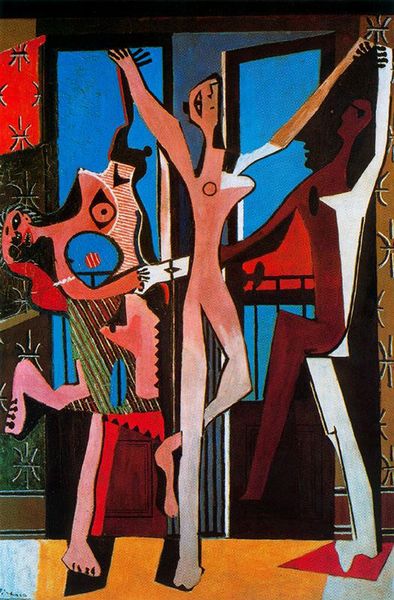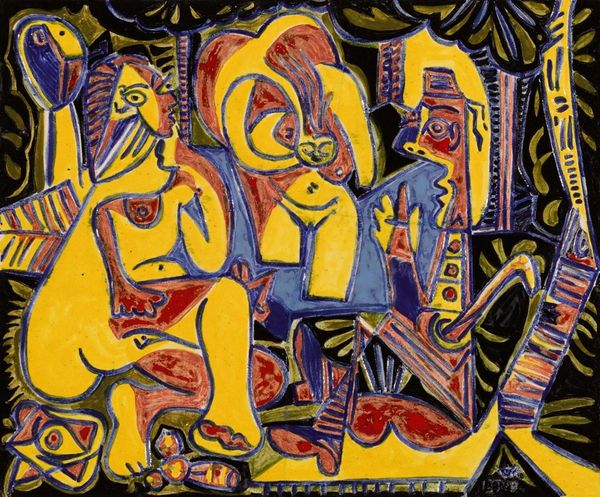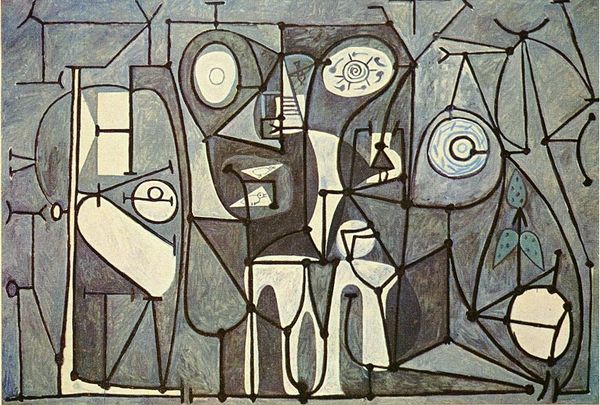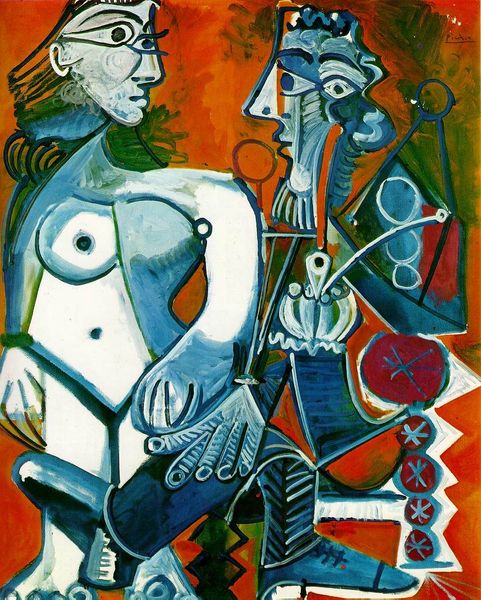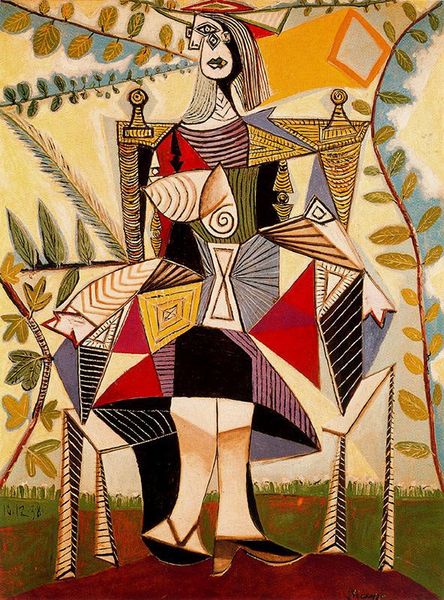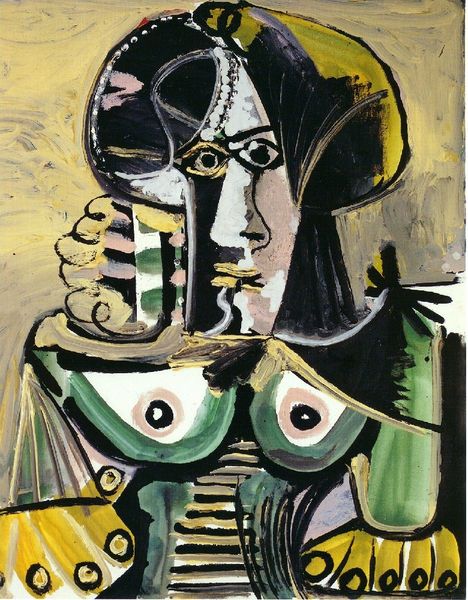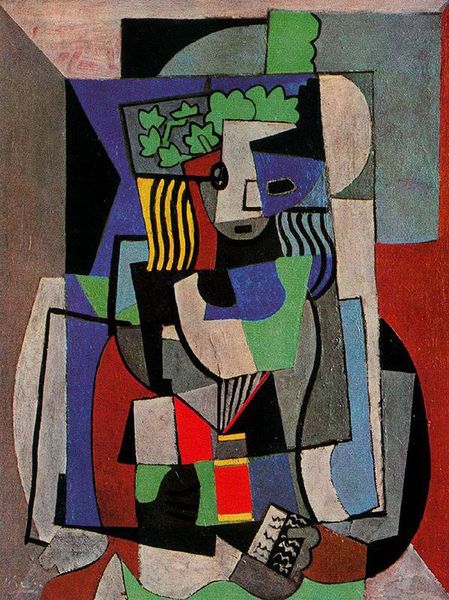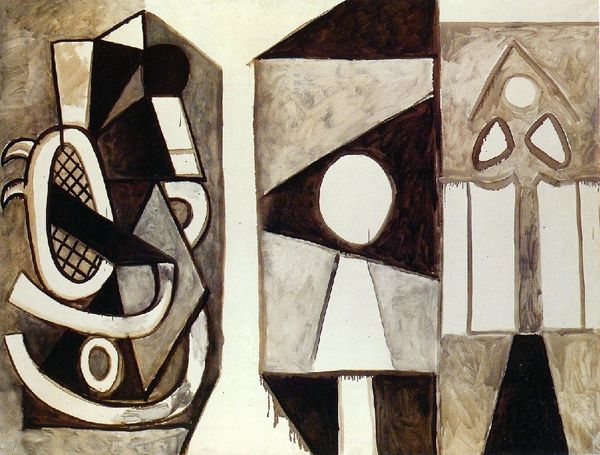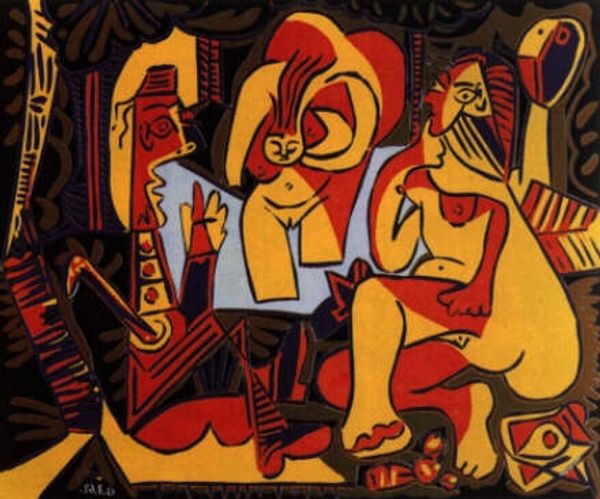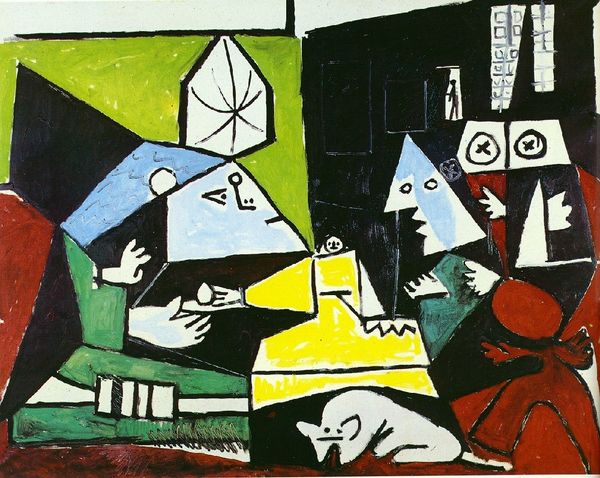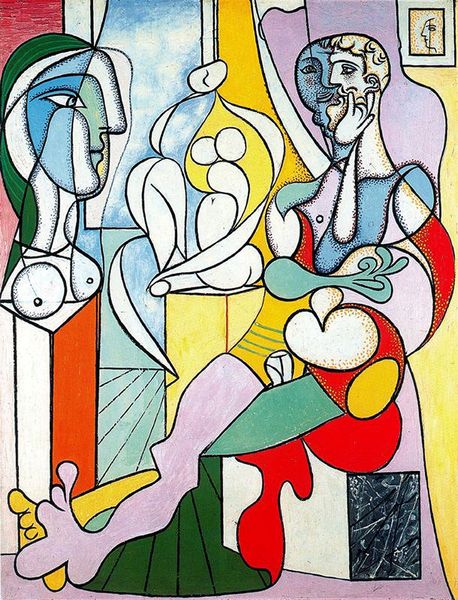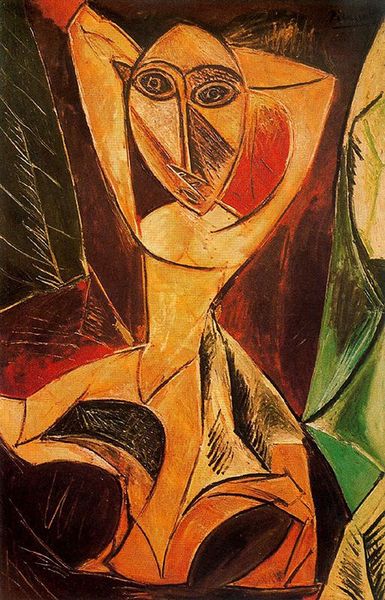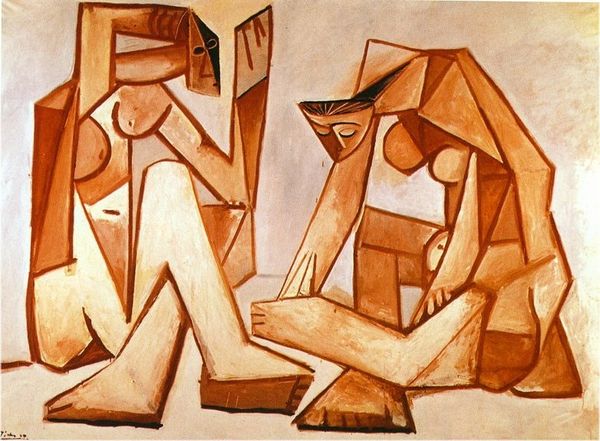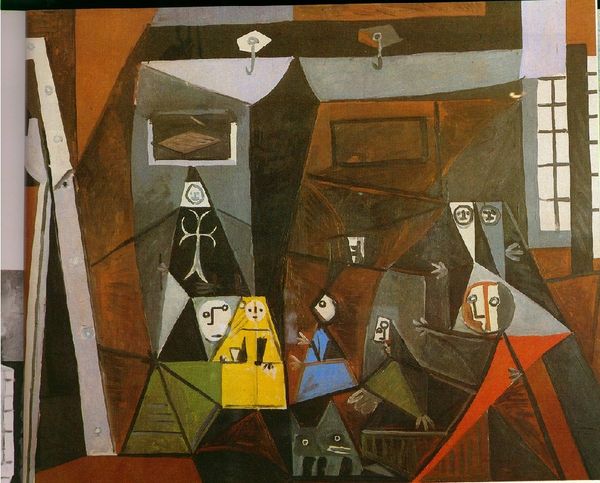
painting, oil-paint
#
portrait
#
cubism
#
abstract painting
#
painting
#
oil-paint
#
female-nude
#
abstraction
#
history-painting
#
nude
#
modernism
Copyright: Pablo Picasso,Fair Use
Curator: Looking at this canvas, one immediately confronts Picasso's "Algerian Women," a piece completed in 1955. The painting employs oil paint to achieve its cubist aesthetic. It’s quite…intense. Editor: Indeed. It’s like a fractured dream. All of these displaced perspectives and harsh lines; there is no obvious comfort for the eyes. It provokes anxiety in me. Curator: Well, it's hard to separate this work from its historical context. The "Algerian Women" series, particularly this one, comes at a moment of both artistic maturity for Picasso and growing global awareness of colonialism and its aftereffects. Delacroix's original, which Picasso directly references, becomes a touchstone for exploring issues of orientalism and power. Editor: The distortions speak to that, don't they? These aren’t figures to admire; they’re puzzle pieces reflecting the artist's turbulent engagement with Delacroix's orientalist fantasy. You see the echoes of harems and odalisques but reshaped by Picasso’s singular vision, as well as, in a much darker way, reflecting contemporary anxieties. Curator: Exactly. There is something about that deconstruction and recreation, visually interrogating Western perspectives and using symbolism as an anchor for deeper discussions. In essence, he lays bare how cultural appropriation flattens humanity, making this painting a brutal indictment of how entire groups are consumed. Editor: The repetition of the female form, broken and reassembled… it’s a disturbing mantra. Like echoes of a broken song resonating over decades and reflecting psychological states of being fragmented, objectified, and disoriented. Picasso evokes both a cultural memory of the orientalist past and a fractured modern sensibility, prompting the viewer to question power and representation. Curator: I agree. By responding to the artistic canon and critiquing existing societal norms, Picasso turns art into a political dialogue, urging audiences to reconsider inherited visions. It really exemplifies the evolving public role of art itself, reflecting and affecting how society understands complex historical and social narratives. Editor: It's fascinating how visual elements combine so powerfully to both captivate and repel. What seemed jarring and disharmonious reveals itself as profoundly articulate. Curator: An encounter that changes perspectives is exactly what significant art should prompt. Editor: Quite. Leaving an impact beyond aesthetic appeal, lingering long after we step away.
Comments
No comments
Be the first to comment and join the conversation on the ultimate creative platform.
